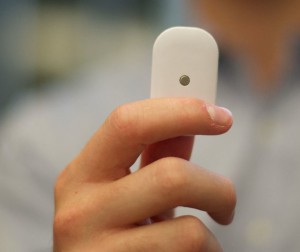 Digital health devices -- including consumer-facing activity trackers and wearables -- have a constant presence on Indiegogo and Kickstarter these days. But lately a few health-related devices have made a big splash, raising well over their funding goal. The Darma smart seat cushion, the SmartMat smart yoga mat, and Pavlok, a wrist bracelet that uses small shocks to discourage bad habits, have all received a fair amount of attention in the last few weeks.
Digital health devices -- including consumer-facing activity trackers and wearables -- have a constant presence on Indiegogo and Kickstarter these days. But lately a few health-related devices have made a big splash, raising well over their funding goal. The Darma smart seat cushion, the SmartMat smart yoga mat, and Pavlok, a wrist bracelet that uses small shocks to discourage bad habits, have all received a fair amount of attention in the last few weeks.
And of course, as usual, a number of other health and fitness products have achieved more modest success on the platforms. As with every crowdfunding roundup, it's important to remember to have a healthy skepticism about groundbreaking medical or technological claims. Crowdfunding platforms have had a few examples in the past of devices that have, at the very least, so far failed to live up to their creators' original promises.
Read on for 11 of the latest health technology pitches to hit the crowdfunding scene.
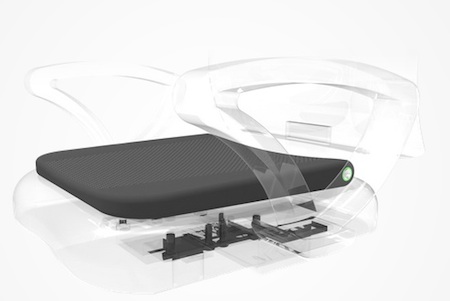
MobiHealthNews wrote about this smart seat cushion back in June. As we explained at the time, the cushion contains one millimeter-thick fiber optic sensors that sense the user’s movements. The pillow also has embedded sensors that detect heart rate, stress level, and respiration. All of this information is sent to a companion app on the user’s smartphone. The app can then track a user’s stress level, sitting time, and posture and try to motivate users to get up every now and then. It will also alert users when they’ve slipped into a bad position and explain how to correct the posture. If users are feeling back pain, the app can guide them through stretches that might help relieve it.
As promised, the seat cushion startup launched a Kickstarter campaign and has done pretty well -- with more than a month to go, it has more than tripled its $40,000 goal. The startup also boasts Guitar Hero founders Kai and Charles Huang as advisors.
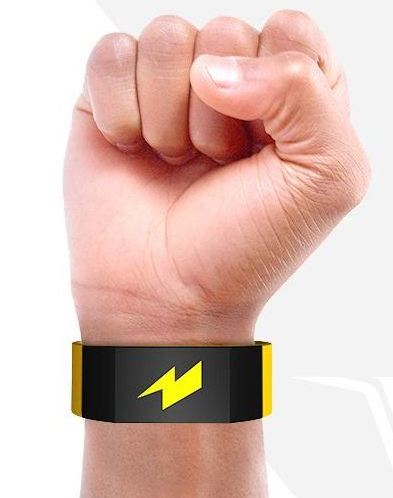
Behavior change is hard. Especially health behavior change, like changing eating habits, sitting less, or exercising more. Pavlok has gotten a lot of press attention with its extreme approach to the problem -- the $199 bracelet delivers electric shocks to help motivate users to kick bad habits.
"I know electric shock sounds crazy," founder Maneesh Sethi says in the Indiegogo video. "But sometimes crazy works." The bracelet is also a tracker that tracks activity and sleep. And the electric shocks are only one motivational strategy. It can also charge the user money, shame them on their social network of choice, or beep or vibrate -- whatever method of persuasion the user elects.
Plenty of the use cases recommended on the website are healthcare related, from fitness and nutrition to remembering to take medications. Pavlok has raised $112,000, more than double its original $50,000 goal.
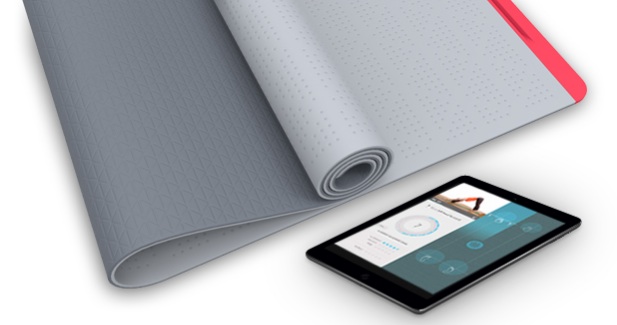
SmartMat might be the first product to apply quantified self principles to yoga, which many people use to stay fit as well as to manage stress. The mat has pressure sensors that connect to the user's mobile device via Bluetooth. The device has three modes. When the user is at home, the device will actively coach them on posture like a live yoga instructor would. When they're in class, it tracks movement and can offer tips in visual only or audio only mode (with headphones) so it doesn't disturb others. Finally, because yoga is about focus and some people might find an app to be detrimental, there is a zen mode which only records the user's movement without offering any realtime insights. The user can review their session afterward and get tips from the app to apply in the future.
SmartMat is also overfunded, with $177,000 raised of its $100,000 goal on Indiegogo. The mat will retail for $447, but is available to backers for $297.
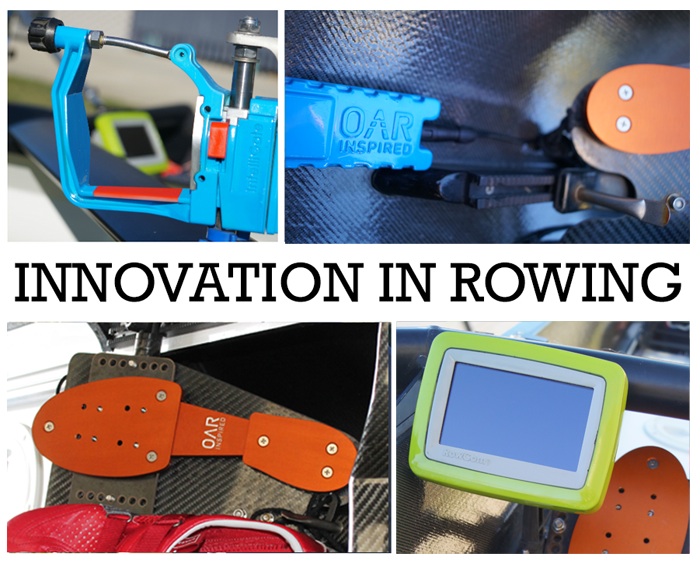
One health and fitness trend that crowdfunding seems to be well-suited for is self-tracking designed for particular sports. Oar Inspired, an Australian company, is funding for a multi-part tracking system for rowers. It includes a sensor mounted to the oarlock called the IntelliGate, which measures sweep angle, depth, force and timing; a footplate that measures foot pressure; and a hull sensor that includes a GPS sensor, and accelerometer, and a gyroscope. All this data is transmitted wirelessly to a color display visible to the coach.
Oar Inspired has raised $80,000 ($92,000 Australian) out of a $61,000 ($70,000 Australian) goal. They hope to use some of the extra money to develop analytics software that can be sold as an add-on service to the tracking devices.
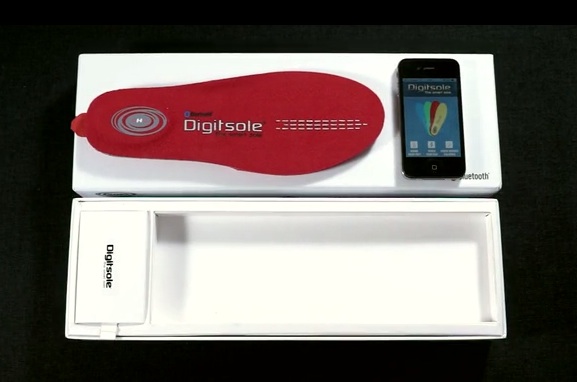
Just when you think there are no untapped form factors for activity tracking, a startup finds one. Digitsole, for instance, is embedding trackers into a shoe insert, and is pairing that tracker with a second use case: a smartphone-controlled foot warmer. With the app, users will be able to access data on steps and movement, and also adjust the temperature of their feet (you can even adjust your right and left foot separately). The company says the battery life varies from seven hours to seven days, depending on how high the temperature is set and how continuously its used.
Digitsole is on Kickstarter and has raised $68,000 of its $40,000 goal. The technology will retail for around $149, and the company is promising to deliver some to backers in time for Christmas.
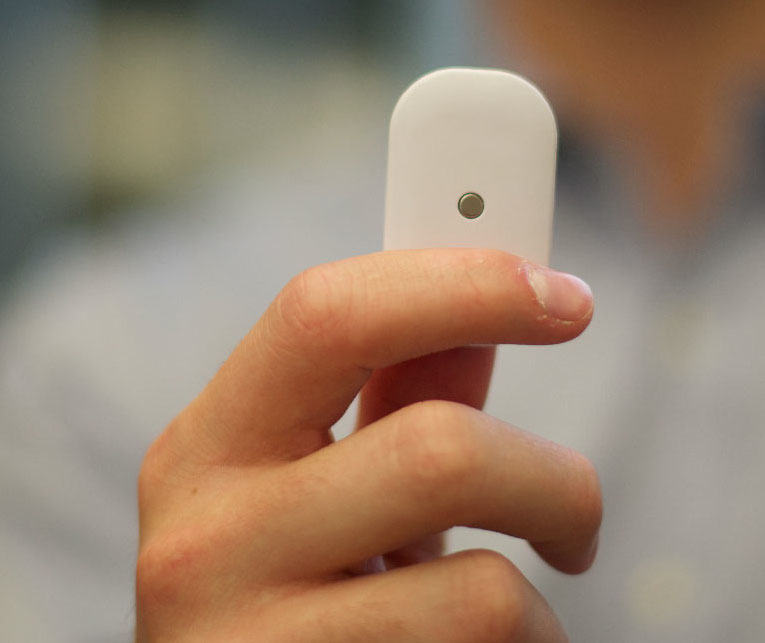
If this adhesive wireless thermometer looks familiar, it's because its a whitelabel of Raiing's FDA-cleared device. But what Philadelphia-based Fever Smart is adding to the equation is a HealthKit-enabled app that CEO Aaron Goldstein says will improve the user experience for parents, as well as allow data to be sent to physicians.
"From our perspective the key to great hardware is great software," he told MobiHealthNews. "So what we’re building is an entire digital health ecosystem on top of that. We’ve spent the last 18 months talking to parents figuring out exactly what features they want in the app, what they like, what they don’t like and we built a proprietary relay unit, so not only can you use the secondary iDevice, but there’s also something you can plug into the wall. We’re also talking to some hospital systems about using this with post-operative patients and sending data directly to physicians."
Fever Smart is already overfunded, with $53,000 raised for its $40,000 goal. The device and app will sell for $179.
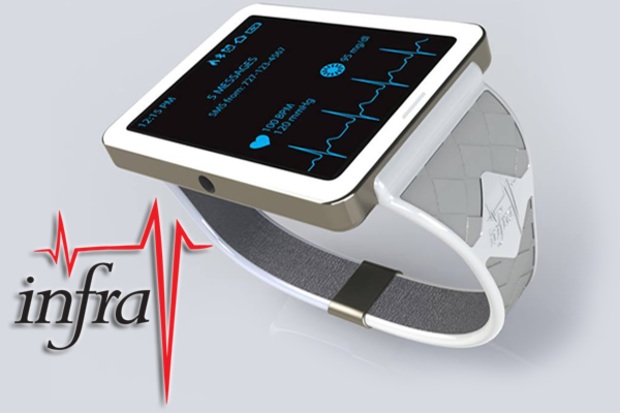
If InfraV can deliver on its promises, it could be groundbreaking for health wearables. But that's a big "if". The large-screened smartwatch device promises to track blood pressure, heart rate, blood oxygenation, body temperature, calories burned and current burn rate, ECG waveform, stress level, sleep quality, and kidney function. Most boldly, the company claims continuous, non-invasive blood glucose monitoring on the wrist -- a claim that, even when it comes from a company like Google, elicits a good deal of skepticism from glucose monitoring experts.
Like other crowdfunded devices that have turned out to be less-than-market-ready (Healbe's GoBe device and TellSpec's food scanner), InfraV claims to use spectrometry to accomplish its novel measurements. Also, the campaign makes clear that the device does not have FDA clearance and is not making any medical claims.

Olive is a wearable wristband that uses a number of health indicators to track and measure the user's stress level. The bracelet is also designed to be fashionable and easy to wear. Olive tracks heart rate and heart rate variability, skin conductance, and skin temperature. It also tracks motion and ambient light. All these factors are combined to detect the user's stress level and respond with various kinds of feedback. The bracelet can alert the user to elevated stress (and prompt them to respond with a breathing exercise or something similar) via LED lights, haptic feedback, or send push notifications to the user's smartphone.
The bracelet has gotten nearly $70,000 of the way to its $100,000 goal on Indiegogo. The device's projected retail price is $150.

Apocalypse Survival Training is an audio-based fitness training game, in the mode of smash hit Zombies, Run! Audio narratives, themed around an alien attack on the city of London, will guide users through strength training, holistic training, and running. Creator Adele Kirby says its this broad focus on three different kinds of workouts that sets AST apart from other, similar audio fitness apps.
The British-made app has raised $10,000 (6,500 pounds) out of a $16,000 (10,000 pound) goal.
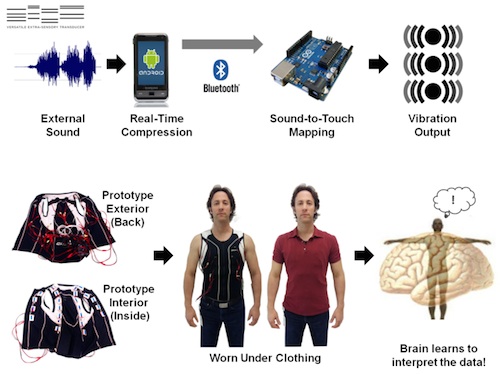
A neuroscientist at Baylor College of Medicine, Dr. David Eagleman, has turned to Kickstarter to find out whether wearable technology can give the deaf a virtual sense of hearing, using a 45-year-old idea called sensory substitution. The Kickstarter is not for a commercial product, but rather a crowdfunded research product (although backers at the $3,000 and $3,500 level can get their own vests). The prototype is a 10-pound vest that translates sounds into touch. Preliminary research indicates that after wearing it for two to three weeks, the brain will begin to translate the signals in a meaningful way, Eagleman writes.
The project needs $6,000 more to meet its $40,000 goal. Its campaign ends Wednesday.
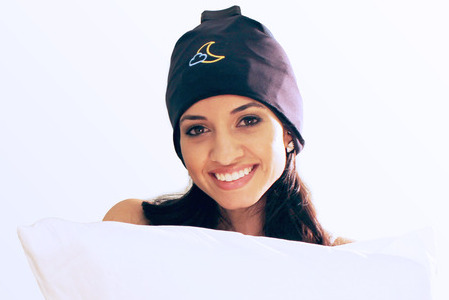
Sleep Shepherd's offering includes EEG-sensors embedded into a soft cap. But it goes beyond just tracking the user's sleep and returning data in the form of charts and graphs. The system includes biofeedback meant to actually help the user get to sleep, by playing specialized tones that guide the brainwaves to a sleeping state. The technology, which is the brainchild of an MIT-educated mechanical engineer, is set to debut at CES this year. It's so far raised $23,000 of its $50,000 goal.














